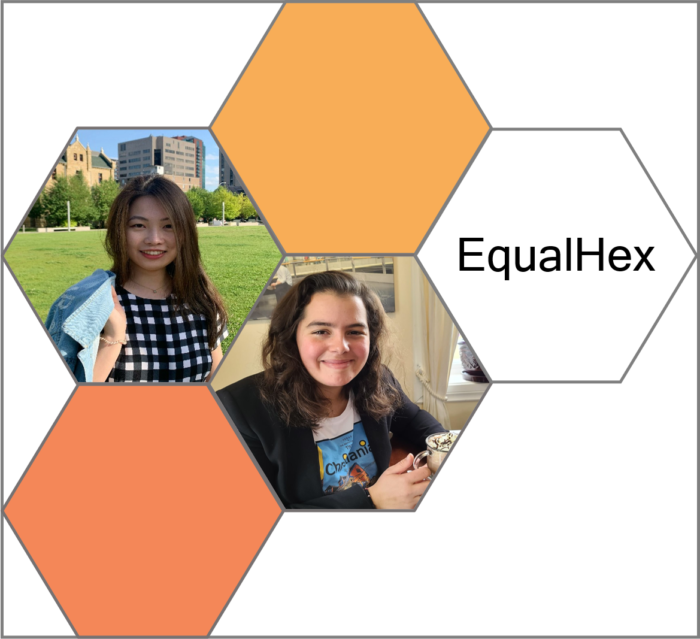Meet the Winners of the ECCE App Challenge 2021
The ECCE App Challenge 2021 results are in. About three months have passed since the first teams began the competition in mid-February. By the start of April, a total of 26 teams had completed their one-week projects for the competition. Each team was tasked to create new and unique apps using Esri technology and open spatial data to address a common theme for this year: Reducing Inequality (adopted from one of the UN sustainable development goals). Today, we are pleased to announce the winners of this year’s competition:
Winners:
Mac n Cheese: Raj Ubhi, Sherry Chen, and Emma Sherwood from McMaster University

Teams from McMaster University regularly participate in the App Challenge. Keeping that participation record intact, this year’s winning team is one of four submissions from McMaster. This team is one of several this year that used ArcGIS Hub to build their projects. The ‘Air Pollution Inequality GeoHub’ that they created focused on raising awareness of issues related to unequal exposure to air pollution for people living in different locations throughout the country. In their site, they present detailed information about issues related to air pollution and its affect on people’s health, and used embedded Web AppBuilder applications to help users explore and learn about the spatial distribution of air pollution that can disproportionately affect different populations.
In addition to the winners, we have two teams tied for the runner-up spot:
Runner-up:
EqualHex: Erin Li and Marta Padilla Ruiz from University of Calgary

The first of our two runner-up teams this year is from Geomatics Engineering program at the University of Calgary. They used Experience Builder to create their app called ‘INcreaseEquality’, which enables users to explore various factors related to inequality within the City of Calgary. A unique feature in their projects is the use of a Discrete Global Grid System (DGGS) to analyze and present data in their maps. In an added touch, detailed Python Notebook included in the material for this project illustrates the processing that was performed to prepare their datasets using DGGS.
Runner-up:
McRaster: Madina Sulaymonova, Olivia Maddigan, and Angelina Abi Daoud from McMaster University

This team put together their app called ‘Equapolis’ using Web AppBuilder, along with an effective custom home page that presents their project and application. Their application enables users to explore an equity index that reflects socioeconomic outcomes in different neighbourhoods throughout the City of Toronto. It also helps users locate and navigate to nearby foodbanks throughout the city.
While the teams above were identified as the winners and runners-up for this year’s App Challenge, these are just 3 out of a total of 26 new and unique applications built and presented the teams participating in the competition at ECCE schools across Canada.
We encourage you to take a look at the showcase for this year, hosted in our GitHub repository. There you can explore the profiles for each team, where you can learn about their team’s objectives, watch their video presentations, and try the live versions of their apps.
We look forward to the next App Challenge in 2022, and hope to see many of these students back again!
